In April 1961, the Bristol Steel and Iron Works, Inc. was awarded the contract to build the 300-foot telescope in Green Bank., West Virginia. Here, four steelworkers bolt the corners of the square base that will hold the 300-foot dish.
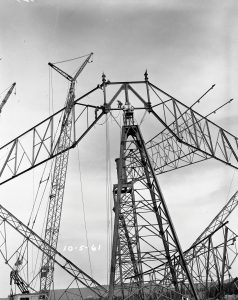
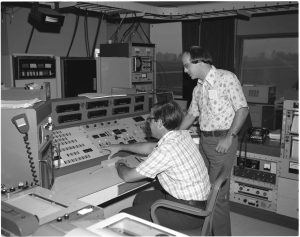
Astronomers in the 300-foot’s Control Room
The control room of the 300-foot telescope in Green Bank, West Virginia was state-of-the-art back in 1970s.
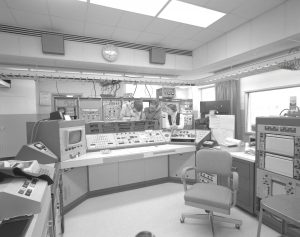
Inside the 300-foot’s control room
Sunshine streams through the large window into the control room of the 300-foot telescope in Green Bank, West Virginia back in 1972.
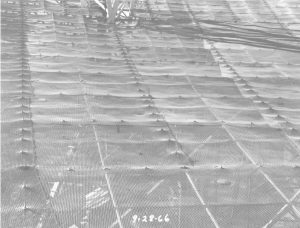
The 300-foot’s warped surface
In 1966, after years of snow and workmen’s trampling, the aluminum surface of the 300-foot telescope in Green Bank, West Virginia became warped. A new surface was installed in 1970.
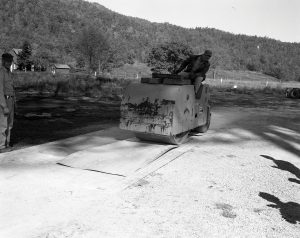
Flattening the 300-foot’s Surface Panels
In an attempt to restore the flatness of the 300-foot telescope’s aluminum surface panels, staff try to iron them using a steam roller.
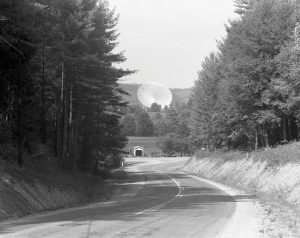
The 300-foot Telescope Was a Landmark
This photo from the 1970s shows the view of the 300-foot telescope in Green Bank, West Virginia from Route 28/92 heading north.





